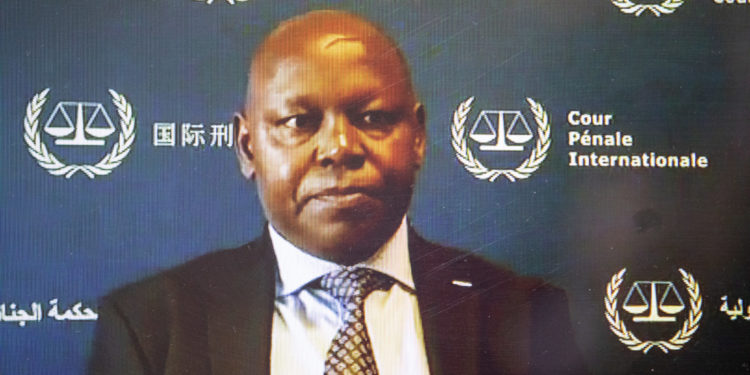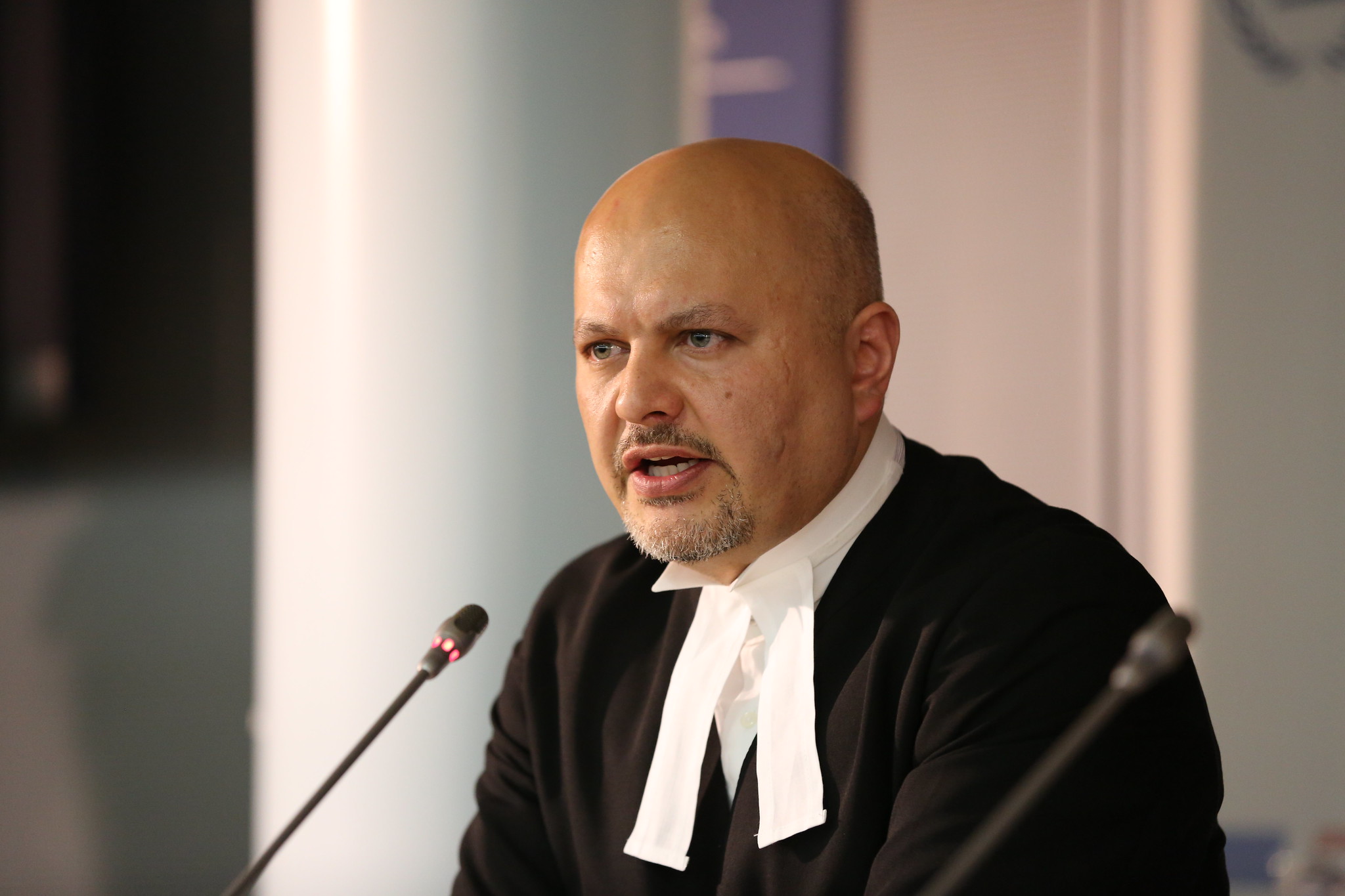By Susan Kendi
Kenyan lawyer Paul Gicheru has for the first time spoken about his surrender to the International Criminal Court (ICC).
In an exclusive interview with Standard Group senior reporter Paul Ogemba, Gicheru said he just wanted to clear his name.
“I did not go to the ICC to fix anyone. It was a personal decision. My conscience could not be at peace forever knowing that there was a warrant from ICC hanging over my head. I wanted to clear this thing to enable me to be at peace.”
The interview in Nairobi, Kenya, came just four days after the ICC released the lawyer into the custody of his government after imposing restrictive conditions on him.
He spoke favourably of the conditions at the court’s detention centre, which is located in a Dutch prison complex in Scheveningen, on the outskirts of The Hague, Netherlands. Gicheru was housed there since his surrender in November last year.
“I was given my own room… The rooms are good with a television and a personal computer connected to the internet. I could also eat whatever I wanted but could buy food at times if what I wanted was not on the menu,” said Gicheru.
Gicheru did not have unrestricted access to the internet, however, he could just read documents sent to him by his lawyer via the internet. This is because of Covid-19 restrictions and his lawyer could not access him physically.
Gicheru however said he would not comment on his case.
“In line with the Court’s decision and the law on sub judice, I wish to inform everyone that I will not be available for any comments or interviews relating to the matter pending in court or any other matter touching on the court generally,” he added.
The Standard Group is one of the largest media organisations in Kenya.
Pre-trial Chamber A of the ICC imposed 10 conditions in its interim release dated February 1, 2021, one of which states that Gicheru, on his own or through his lawyer, may not speak to journalists, or make any public statements or social media posts on his case.
The release is unusual, especially in the case of Gicheru, who had been a fugitive from justice for five years after the court issued a warrant for his arrest, accusing him of interfering with witnesses in the original case against Kenya’s Deputy President William Ruto and radio presenter Joshua Sang. Judge Reine Adélaïde Sophie Alapini-Gansou held Gicheru’s voluntary surrender in his favour and took into account the fact that the prosecutor did not oppose his request for interim release.
“In the view of the chamber, Mr. Gicheru’s voluntary surrender demonstrates his concrete willingness to subject himself to the jurisdiction of the court in relation to the allegations against him,” said Judge Alapini-Gansou.
The court also required Gicheru to provide financial security of one million Kenyan shillings [$10,000] to the ICC Registrar in form of cash or bank order. He shall provide copies of his travel and identity documents, and shall notify the court of any international travel he intends to make seven days in advance. He shall surrender himself to the court and appear before it whenever and wherever ordered.
The lawyer shall neither interfere with the investigation nor contact prosecution witnesses or victims in the case except through his lawyer and under strict protocols, which would involve a separate court decision. Additionally, Gicheru is required to report once a week to the Registrar of the ICC, provide the Registrar with his mobile and telephone numbers, which shall remain active with airtime, so that he is reachable at any time. The lawyer shall reside in a specific location in Kenya for the duration of the proceedings.
If Gicheru fails to comply with any of these conditions, the court can revoke his financial security and issue a fresh arrest warrant, either at the request of the ICC Prosecutor or on its own. The ICC has also invited the government of The Netherlands to give its observations on the possibility of Gicheru temporarily residing in the country for the proceedings before February 26, 2021.
Gicheru gave himself up to the Dutch authorities on November 2, 2020, long after the ICC had issued an arrest warrant against him and his co-accused, Philip Kipkoech Bett, in 2015.
During his initial appearance, Gicheru denied that he bribed or attempted to bribe six International Criminal Court (ICC) witnesses eight years ago. He also confirmed to the court that he had surrendered voluntarily, without any coercion, and at his own expense.
Gicheru’s current legal problems stem from one of two cases that the ICC instituted after post-election violence in Kenya in 2007/2008. The case against Ruto and Sang ended in a mistrial in 2016, and the ICC bench vacated the charges.
The ICC accused Gicheru, Bett, and Kenyan journalist Walter Barasa of leading efforts to tamper with witnesses through bribery and corruption.
The prosecution has up to February 12 to file the document containing the charges (DCC) and the list of evidence. The DCC includes the charges listed in the arrest warrant and the details of the prosecution’s evidence. The defence will have up to February 26, 2021, to file its defence and list of evidence. However, Judge Alapini-Gansou said the defence was not obliged to do so.
Both the prosecution and defence should file their submissions by March 5, 2021, and the prosecution will then have up to March 22, 2021, to respond to the defence’s submissions. The defence would have up to March 29, 2021, to reply to the prosecution’s submissions.
Read more on the detention unit: https://jfjustice.net/palace-or-just-an-international-standards-where-and-how-do-the-icc-detainees-live/







